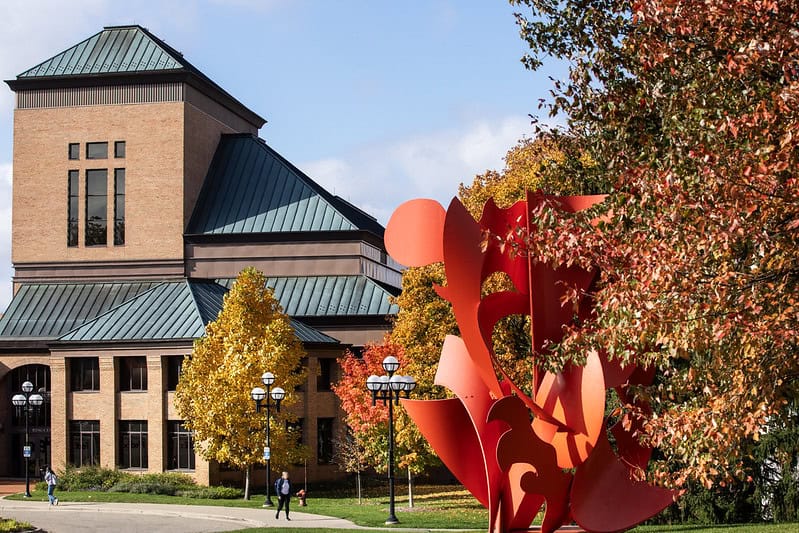
Keppel-Aleks receives Harold R. Johnson Diversity Service Award
Associate Professor Gretchen Keppel-Aleks receives the Harold R. Johnson Diversity Service Award.

Associate Professor Gretchen Keppel-Aleks receives the Harold R. Johnson Diversity Service Award.
Associate Professor Gretchen Keppel-Aleks is among five faculty members who have been selected to receive the 2024 Harold R. Johnson Diversity Service Awards in recognition of their exceptional contributions to fostering a culturally and ethnically diverse community at the University of Michigan.
The Office of the Provost has bestowed the annual award since 1996 in honor of Harold Johnson, dean emeritus of the School of Social Work. Honorees were recognized at a ceremony in September and receive a $5,000 stipend.

Keppel-Aleks joined the University of Michigan in 2013. Her scholarship aims to understand the impacts of global climate change on ecosystems and carbon cycling.
Her research team focuses on advancing the use of remote sensing and atmospheric composition data to develop a predictive understanding of climate feedback and ecosystem health.
Keppel-Aleks strives to mentor a diverse group of students and postdoctoral scholars since climate change will have differential impacts on populations within and across geographies, and diverse perspectives can help define critical needs in Earth system research.
Keppel-Aleks chairs the Department of Climate and Space Sciences and Engineering’s Justice, Equity, Diversity and Inclusion Committee, through which she worked with faculty, staff and students to draft policies about the code of conduct, establish procedures to consider equity and inclusion during the hiring process, and improve the onboard experience of transfer students.
She also is the department’s associate chair for education, through which she has conducted curriculum mapping to identify a need for coursework that explicitly addresses how climate scientists can ethically communicate with the public and engage diverse knowledge sources, including traditional knowledge.
Keppel-Aleks participates in the North American Carbon Project, co-chairing the 2021 annual meeting, where a goal was to highlight the voices of Mexican and tribal participants who have traditionally been underrepresented in the research community.
Originally published in The University Record in an article by Hillary Brody Anchill